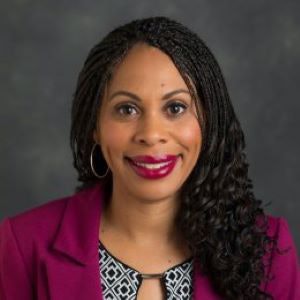The impact of gendered racism and microaggressions on the mental health of young women of color was analyzed on Tuesday as part of the Steve Fund’s virtual webinar series called “Community Conversations.”
“Healing for Young Women of Color: How to Survive and Thrive in the Face of Gendered Racism,” highlighted the intersections of race and gender through the exploration of COVID-19, stereotypes and media perceptions.
Over the past year, the pandemic has brought on a new wave of anti-Asian American hate crimes. Most recently, the mass shootings at three Atlanta-area spas resulted in the deaths of eight people, six of whom were Asian women.
Dr. Jioni Lewis, an associate professor of counseling at the University of Maryland, said Asian women are more likely to experience harassment and racial sentiment “in the aftermath of the racist rhetoric of COVID-19.”
More attention has also been brought to the existing disparities within health, education and other sectors. Nationwide, the death rate of Black Americans is 1.4 times higher compared to White Americans, according to the COVID-19 Racial Data Tracker.
 Dr. Jioni Lewis
Dr. Jioni LewisAdditionally, among rates of unemployment in 2020, there was a perception that women lost more jobs. However, in a further analysis, White women gained more jobs while women of color lost them, Lewis reported.
“That was not part of the narrative shared in the media at the time because we often have a difficult time looking at the intersections of race and gender and how it plays itself out,” she said. “What is missing is an intersectional analysis by race and gender to uncover the disproportionate impacts of COVID-19 on [BIPOC] women.”
Gendered racism has also remained prevalent in other aspects of media coverage such as politics.
For example, Lewis pointed to Reps. Alexandria Ocasio Cortez, D-N.Y.; Rashida Tlaib, D-Mi.; Ayanna Pressley, D-Mass; and Ilhan Omar, D-Minn, who experienced scrutiny for speaking out against racial injustices.
“These are things that I am sure many women experience in their own every day lives when they try to speak out,” said Lewis. “The ways in which they are silenced or marginalized in lots of different ways.”
However, gendered racism can also occur in more “subtle ways” through microaggressions.
In Lewis’ conversations with Black women college students about their experiences, three core themes emerged. Participants reported being reduced to stereotypes, silenced and marginalized and experienced assumptions about communication styles and beauty.
Women of color are silenced in professional settings and the authority of women faculty members is often undermined, especially in leadership positions, Lewis said.
For women of color, experiencing gendered racism leads to higher psychological distress, anxiety, post-traumatic stress and poorer self-reported physical health, she reported.
“Often, women of color will experience fatigue, back pain, insomnia or other types of symptoms of chronic stress,” said Lewis. “These every day microaggressions lead to chronic stress for women of color that do have a negative impact on our mental health and wellbeing.”
To cope with gender racial microaggressions, individuals can use resistance strategies which involve using their voices as power and educating the perpetrator. However, individuals can also choose to lean into support networks or disengage from the situation.
Lewis emphasized the importance of moving towards radical healing since coping is about “survival” while healing is focused on “thriving.”
“It’s really about this dialectic that exists,” she said. “We are often wanting to think about ways we can fight the oppression that we experience but also think about the future.
Radical healing focuses on five key frameworks including critical consciousness, cultural authenticity and self-knowledge, radical hope, emotional and social support and strengthen resistance.
Strategies for radical healing involve identifying sources of stress and trauma, cultivating cultural authenticity and self-knowledge, visualizing possibilities for wellness, freedom and dignity, relying on support networks and standing for social justice and action, said Lewis.
“That strength and resistance we have as women of color, own that,” she added. “We know that through history, women of color have been pushing for social justice and cultivating that is a form of healing for us all.”
Sarah Wood can be reached at [email protected].















